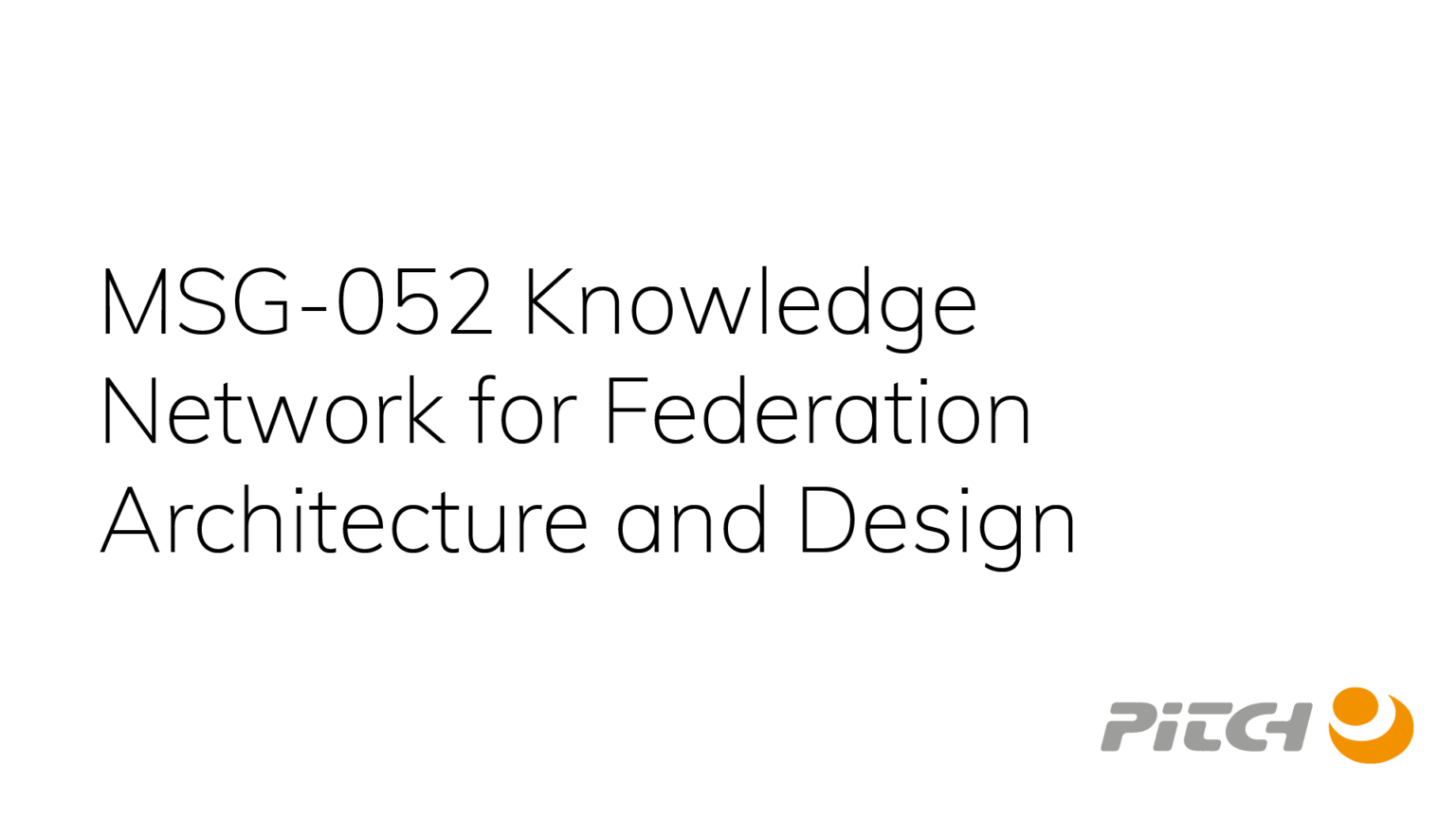ABSTRACT: Development of distributed simulations is a complex process requiring extensive experience, in-depth knowledge and a certain skills set for the Architecture, Design, development and systems integration required for a federation to meet its operational, functional and technical requirements. Federation architecture and design is the blueprint that forms the basis for federation-wide agreements on how to conceive and build a federation. Architecture and design issues are continuously being addressed during federation development. Knowledge of “good design” is gained through hands-on experience, trial-and-error and experimentation. This kind of knowledge however, is seldom reused and rarely shared in an effective way. This paper presents an ongoing effort conducted by MSG-052 “Knowledge Network for Federation Architecture and Design” within the NATO Research and Technology Organisation (NATO/RTO) Modelling and Simulation group (NMSG).
The main objective of MSG-052 is to initiate a “Knowledge Network” to promote development and sharing of information and knowledge about common federation architecture and design issues among NATO/PfP (Partnership for Peace) countries. By Knowledge Network, we envision a combination of a Community of Practice (CoP), various organisations and Knowledge Bases.
A CoP, consisting of federation development experts from the NATO/PfP nations, will foster the development of stateof- the-art federation architecture and design solutions, and provide a Knowledge Base for the Modelling and Simulation (M&S) community as a whole. As part of the work, existing structures and tools for knowledge capture,
management and utilization will be explored, refined and used when appropriate; for instance the work previously done under MSG-027 PATHFINDER Integration Environment provides lessons learned that could benefit this group.
The paper will explore the concept of a Community of Practice and reveal the ideas and findings within the MSG-052 Management Group concerning ways of establishing and managing a Federation Architecture and Design CoP. It will also offer several views on the concept of operations for a collaborative effort, combining voluntary contributions
as well as assigned tasks. Amongst the preliminary findings was the notion of a Wiki-based Collaborative Environment in which a large portion of our work is conducted and which also represents our current Knowledge Base. Finally, we present some of our main challenges and vision for future work.
Authors: Gunnar Öhlund, Björn Löfstrand, Fawzi Hassaine
Publication: Proceedings of 2007 Fall Simulation Interoperability Workshop, 07F-SIW-024, Simulation Interoperability Standards Organization, September 2007.

